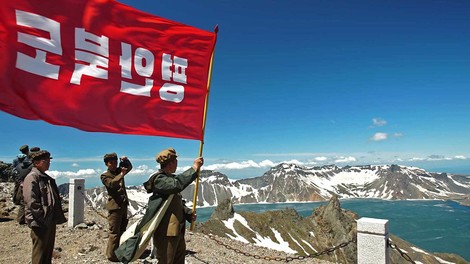Your podcast discovery platform
Curious minds select the most fascinating podcasts from around the world. Discover hand-piqd audio recommendations on your favorite topics.

piqer for: Globalization and politics Global finds
I am an Australian freelance journalist focussing on conflicts, politics, and warzones around the world. I have been working as a journalist for over 5 years, having reported from Australia, Germany, China, Egypt, Palestine, and Ukraine. I am especially interested in the way that new technologies are being used in conflict zones in unexpected and often disturbing ways. During my time working as a journalist, I also co-founded open-source war reporting site Conflict News.
Secret State: A Journey Into The Heart Of North Korea
With each nuclear or ballistic missile test by North Korea, tensions on the peninsula grow. The leaders of both sides now openly threaten apocalyptic nuclear war against each other, while a peaceful solution to the conflict looks ever more remote. Throughout this period of high tension, we have seen much reporting about the destruction that such a war would wreak on countries like South Korea or Japan.
Of course, what we hear less of is how a war would affect the population of North Korea. With only a propagandized education, constant surveillance, and no effective means of dissent, the average North Korean would be as much of a victim in such a war as someone who died in Seoul or Tokyo. And indeed they would die in great number – any nuclear strike against the US or one of its allies would invite a war of annihilation against North Korea, more destructive than anything the world has seen to date.
For this reason, Will Ripley and Marc Lourdes' reports from North Korea are all the more important. Taking the form of a series of short anecdotes, paired with brilliant images and compelling footage, they attempt to humanize the population of the reclusive state. While they are obviously being shown staged events for much of the time, the authors nonetheless succeed in showing the population not as the robotic, propaganda-fed slaves of the popular conception, but rather as average people simply trying to live their lives and make the best of a bad situation.
The sad fact is that such reportage, in the event of a war, may serve to be a valuable reminder of everything that was lost.
